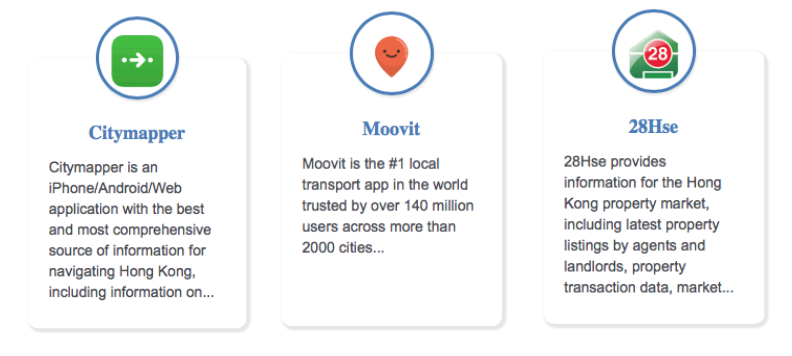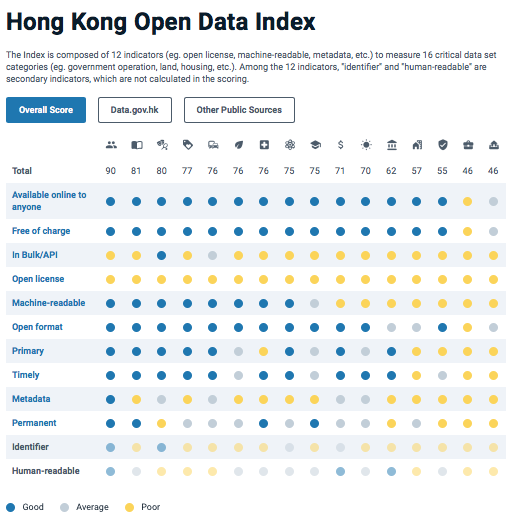A smart city uses innovation and technology to address urban challenges, improve the effectiveness of public services, make the city more liveable and sustainable. To achieve these, open data is an essential foundation.
Hong Kong Smart City Blueprint and Open Data
In 2017, the Government released the Hong Kong Smart City Blueprint, striving to turn Hong Kong into a world class smart city. Open Data is one of the major strategies. The Government pledges to open up more public and private sector data and promote the use of open data for smart city innovation.
Moreover, in the 2020-21 Budget Speech, the Government earmarked $60 million to establish the first Geospatial Lab, aiming at encouraging the public to use spatial data to develop mobile applications. The Innovation and Technology Bureau will also introduce the Smart City Blueprint 2.0 this year.
What Has Been Done?
Through the Public Section Information (PSI) Portal DATA.GOV.HK, everyone can freely access, download, and harvest the datasets through API for both commercial and non-commercial purposes. By the end of 2019, there are about 4,000 datasets in the Portal, covering demographic, economic, geographical, and meteorological data, etc.
Another data platform specifically for geospatial information is also made available in 2018 for public use. The Hong Kong GeoData Store was built with the vision that making geospatial data openly accessible can engender value-added reuse, innovations, and research, which would help to foster smart living in Hong Kong.
The following are some examples of creative web and mobile applications developed by the Government and the community using datasets in the Portal.

Is Our Government Doing a Good Job?
In May this year, the Internet Society Hong Kong Chapter launched the Hong Kong Open Data Index. The Index measures DATA.GOV.HK based on international and regional assessment standards and tools. The findings reveal that the performance of the Portal is inadequate in areas such as copyright licenses and description of the datasets, i.e., metadata.

In addition, it also maintains fewer datasets than other governmental public websites, some datasets are published with inconsistent standards, and very few datasets come with an API.
Recommendations
The Society recommends some immediate actions and comprehensive measures to address the shortfalls in the Portal, such as auditing the datasets, supplying core metadata and an abstract to every published dataset, and establishing an interactive public platform on the Portal. The Assessment Report and the Key Findings and Recommendations report have the details.
These findings and recommendations indicate that our Government should make more datasets available. Furthermore, put in more efforts to enhance the quality and reusability of the data.
In my next post, I will introduce another open data endeavour, which embraces the idea that data provide vital input and support in developing policies that can address major social issues. We can also look at their comments on the performance of Hong Kong.
— By Poon Sau Ping, Research Support Services, Library
Hits: 6437
Go Back to page Top
- Category:
- Research Tools
Tags: open data, smart city
published November 5, 2020
last modified March 11, 2022


